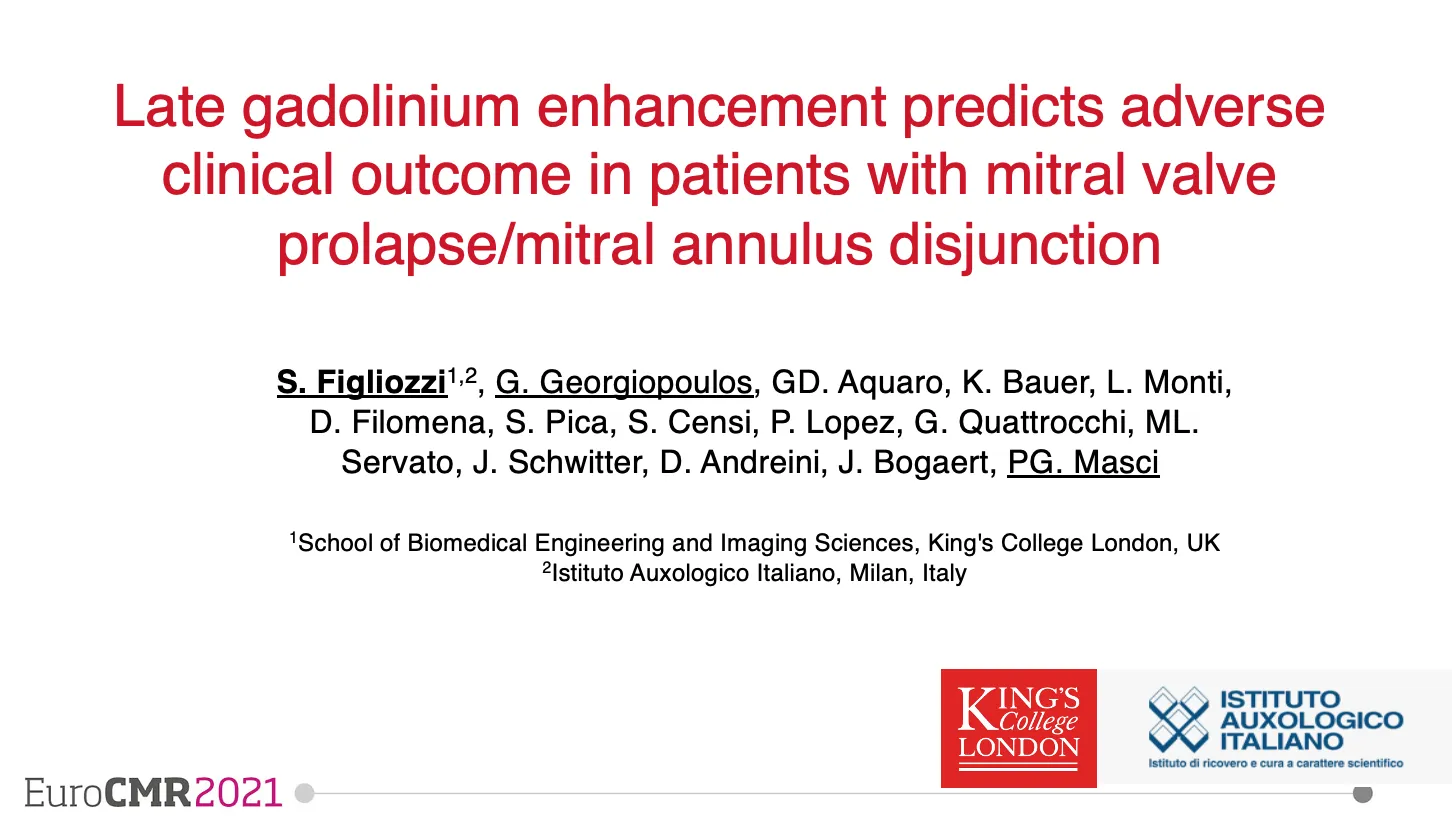The identification of these subjects puzzled the clinicians and our study has added of piece of knowledge by showing that LGE-CMR is strong an independent prognosticator of malignant arrhythmias which enables to implement risk stratification on an individual-basis. This is the first step towards a more personalised risk stratification in subjects with MVP/ MAD.
Dr Pier-Giorgio Masci
14 May 2021
Novel heart imaging study wins award at the European Congress of Cardiovascular Magnetic Resonance (EuroCMR)
The study is a first step towards a more personalised risk stratification in subjects with MVP/ MAD

Dr Stefano Figliozzi, a cardiologist from the Cardiovascular Imaging Department at the School of Biomedical Engineering & Imaging Sciences, currently consultant cardiologist in Milan, won the Young Investigator Award at EuroCMR Congress 2021 for a study entitled late gadolinium enhancement predicts an adverse clinical outcome in patients with mitral valve prolapse/mitral annulus disjunction.
The study investigates a large cohort of patients with anatomical and functional abnormalities of the heart known as mitral valve prolapse (MVP) with or without mitral annulus disjunction (MAD), abnormal atrial placement.

Recent evidence suggests that, while most of these patients have an excellent prognosis, a subset of MVP/MAD patients are exposed to an increased risk of life-threatening ventricular arrhythmias including sudden cardiac death.
In their study, the researchers found that the presence of myocardial fibrosis by late gadolinium enhancement (LGE)-CMR enables the identification of patients exposed to an increased risk of life-threatening ventricular arrhythmias or sudden death.
Principle Investigator Dr Pier-Giorgio Masci said clinicians often face the daunting task of managing asymptomatic patients with MVP/ MAD but otherwise normal heart.
The study stemmed from an International Registry including 15 Academic Centres across Europe led by Dr Pier-Giorgio Masci with the support of Prof Amedeo Chiribiri EuroCMR is one of the largest congress worldwide dedicated to CMR, and this year there were more than 1200 participants from 81 countries.
This study is the result of an international collaboration between 15 academic centres, which has made possible the collection of a large cohort of patients, larger than any single centre registry published so far. This study is based on the use of routine CMR protocols and therefore the results are of immediate clinical applicability.
Professor Amedeo Chiribiri, Professor of Cardiovascular Imaging at King’s and Honorary Consultant Cardiologist at Guy's and St Thomas'

